
Wetenschap
Hoe de politiek, en niet de klimaatverandering, verantwoordelijk is voor rampen en conflicten
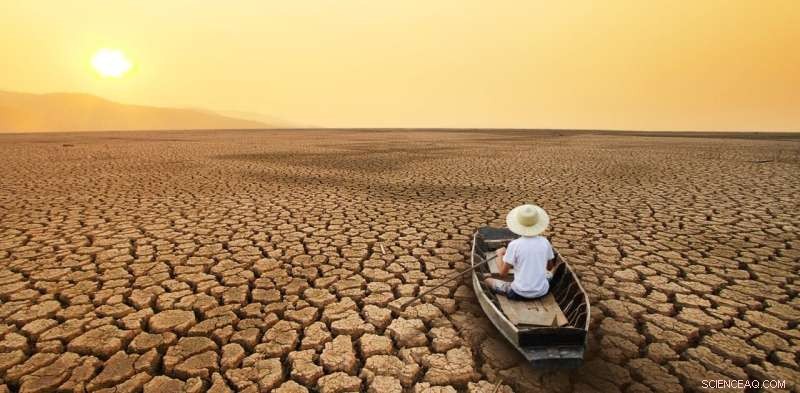
Credit:Piyaset / shutterstock
Het laatste VN-rapport over de mogelijke gevolgen van klimaatverandering geeft een grimmig oordeel, waarbij sommige effecten nu als onvermijdelijk worden beschouwd. Maar er zijn ook lessen over rampen en gewelddadige conflicten die levens kunnen helpen redden en veiligere samenlevingen kunnen creëren, ongeacht de door de mens veroorzaakte klimaatverandering.
De belangrijkste beschikbare tekst van het rapport van het Intergouvernementeel Panel inzake klimaatverandering (IPCC) over "Impacts, Adaptation and Vulnerability" is een samenvatting van 35 pagina's voor beleidsmakers, die volgens de IPCC-regels is goedgekeurd door de regeringen van de lidstaten.
IPCC-wetenschappers worden aangesteld door lidstaten en deze bijdragende onderzoekers produceren geen nieuwe wetenschap. Ze vatten de tienduizenden peer-reviewed wetenschappelijke artikelen over klimaatverandering samen sinds de vorige beoordeling (het laatste grote IPCC-rapport over effecten, aanpassing en kwetsbaarheden werd gepubliceerd in 2014).
De wetenschappers ontvangen vervolgens duizenden recensie-commentaren op concepten die tekstuele herzieningen of reacties vereisen. Door een reeks uitspraken te doen over ons begrip van klimaatverandering, kent het rapport betrouwbaarheidsniveaus toe zoals "laag" of "zeer hoog" om aan te geven hoe zeker de auteurs van elk ervan zijn.
Het huidige rapport wordt overschaduwd door Oekraïense wetenschappers die de goedkeuringssessie moeten verlaten om voor zichzelf en hun families te zorgen tijdens de Russische invasie van hun land. Desalniettemin hebben ongeveer 90 wetenschappers uit alle bewoonde continenten en evenwichtig tussen vrouwen en mannen het document opgesteld. Zoals vaak gebeurt, kwamen er rapporten naar voren van politieke pogingen om wetenschappelijke inhoud te verwijderen die de politieke aard van het materiaal benadrukt.
Rampen en klimaatverandering
Als academicus die onderzoek doet naar rampen en gezondheid, was ik vooral geïnteresseerd in de manier waarop het rapport klimaatverandering onderzocht als oorzaak van rampen, waaronder gewelddadige conflicten, en hoe acties worden uiteengezet om deze te vermijden.
In de samenvatting van het IPCC wordt de term 'natuurramp' volledig vermeden. Dit weerspiegelt tientallen jaren werk waarin wordt uitgelegd dat rampen worden veroorzaakt door bronnen van kwetsbaarheid, zoals ongelijke en ongelijke toegang tot essentiële diensten zoals gezondheidszorg of slecht ontworpen of gebouwde infrastructuur zoals elektriciteitscentrales, en niet door het klimaat of andere omgevingsinvloeden.
Het rapport stelt met veel vertrouwen dat "klimaatverandering bijdraagt aan humanitaire crises waarbij klimaatgevaren samengaan met een hoge kwetsbaarheid." Met andere woorden, er moet kwetsbaarheid zijn voordat een crisis kan ontstaan. Klimaatverandering is niet de oorzaak van rampen. The report explains that places with "poverty, governance challenges and limited access to basic services and resources, violent conflict and high levels of climate-sensitive livelihoods" are more vulnerable to climate change impacts.

Mozambique is one of the world’s most vulnerable countries, according to the Climate Risk Index. Credit:fivepointsix / shutterstock
For example, cyclones still lead to disasters in Bangladesh. Nevertheless, the country has substantially reduced deaths and damage through concerted efforts to reduce vulnerabilities. These include building thousands of storm shelters and issuing early warnings by multiple means. These measures have made cyclones less deadly even as the storms have become more intense due to climate change.
Weather disasters which kill more people tend to occur where communities and infrastructure are more vulnerable, according to the report. Heat is rightly highlighted as a major concern, since it causes crops to fail and forces people to halt work. That said, it is surprising that the health impacts of humidity, which can combine with extreme heat to deadly effect, are not mentioned.
The report explains that disaster risk and impacts can be reduced by tackling fundamental issues which cause vulnerability, no matter what the weather and climate do. It places high confidence in risk management, risk sharing, and warning strategies as key tasks for adapting to climate change.
Violent conflict and climate change
As with disasters, the report cannot attribute violent conflict to climate change. With high confidence, the report states that "compared to other socioeconomic factors the influence of climate on conflict is assessed as relatively weak." This corroborates other research which argues peace and conflict are more determined by social and political factors than by climate or weather.
The authors identify, with high confidence, actions to reduce the "underlying vulnerabilities" which raise the risk of violent conflict. These can be based on research and might include redistributing wealth and resources to make societies more equal and equitable, while providing diverse livelihoods. Adapting to climate change is only part of the solution. Scientific analyses note how development, rather than climate change adaptation only, is the most effective overall.
In fact, despite frequent assumptions that climate change caused or was linked to violent conflicts in the past, the summary implies that no single conflict should be attributed to climate change, natural or anthropogenic. This conclusion matches analyses for Darfur in 2003 and Syria in 2011.
Summary of the summary
The IPCC's press release on the new report was headlined "Climate change:a threat to human wellbeing and health of the planet." Its stark opening detailed "dangerous and widespread disruption." Yet its subtitle, "Taking action now can secure our future," needs emphasizing. This is particularly the case for disasters and violent conflicts which, the summary document states with high confidence, are not significantly influenced by human-caused climate change.
Perhaps the press release mentions neither disasters nor violent conflict because they represent comparatively positive news among the bleakness. Ultimately, "taking action now" means applying the science of disasters and conflict for prevention. Then, we save lives and livelihoods, no matter what climate change does.
 Welke brandwonden heter: ethanol of methanol?
Welke brandwonden heter: ethanol of methanol?  Natuurkundigen ontwikkelen nieuwe methode om antibioticaresistente bacteriën te identificeren
Natuurkundigen ontwikkelen nieuwe methode om antibioticaresistente bacteriën te identificeren Koud gaan:de toekomst van elektronenmicroscopie
Koud gaan:de toekomst van elektronenmicroscopie Universele latente aniondonoren voor ultralage werkfunctie-oplossing-verwerkbare elektroden
Universele latente aniondonoren voor ultralage werkfunctie-oplossing-verwerkbare elektroden Microbiële schatten ontginnen van giftige sites
Microbiële schatten ontginnen van giftige sites
 Feiten over de Catawba River Basin in North Carolina
Feiten over de Catawba River Basin in North Carolina  Gevangen zout water veroorzaakte dood mangrove na orkaan Irma
Gevangen zout water veroorzaakte dood mangrove na orkaan Irma Nieuw onderzoek identificeert New Bedford Harbor als belangrijke bron van PCB's in de lucht
Nieuw onderzoek identificeert New Bedford Harbor als belangrijke bron van PCB's in de lucht Bioloog zoekt afgelegen eiland in de Stille Zuidzee naar slijmzwammen
Bioloog zoekt afgelegen eiland in de Stille Zuidzee naar slijmzwammen Hoe de impact van El Niño op het klimaat in Azië en de westelijke Stille Oceaan zou veranderen onder de opwarming van de aarde
Hoe de impact van El Niño op het klimaat in Azië en de westelijke Stille Oceaan zou veranderen onder de opwarming van de aarde
Hoofdlijnen
- Hoe het toedieningssysteem van het lichaam kan leiden tot gerichte therapieën
- De genetica van Biracial-kenmerken
- Onderzoekers ontdekken dat twee verschillende ecologische mechanismen veerkracht kunnen bieden tegen invasieve soorten
- Zes soorten neuroglia
- Do All Cells Have Mitochondria?
- Soorten organismen die van plantencellen zijn gemaakt
- Vissers in Istanbul houden traditie in stand ondanks voorraadalarm
- Klimaatverandering kan het mariene milieu meer dan wat dan ook beïnvloeden
- Losse huid en slap volume beschermen Hagfish tegen haaienbeten
- Het mysterie oplossen waarom de koolstofdioxide in de atmosfeer tijdens ijstijden lager was
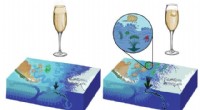
- Onderzoek naar outdoor- en beschermende kleding probeert fluorchemicaliën af te schudden
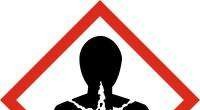
- Hoe reproduceert een meerval?

- De productie van energiegewassen op beschermde gronden verhoogt mogelijk de broeikasgassen niet
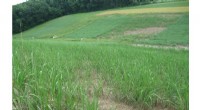
- Kinderen leren over klimaatverandering, hoop inspireren en actie ondernemen om de toekomst te veranderen
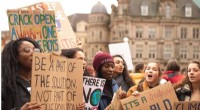
 De wetenschap achter waarom sommige mensen van dieren houden en anderen niets kan schelen
De wetenschap achter waarom sommige mensen van dieren houden en anderen niets kan schelen Wetenschappers ontwikkelen nieuw landoppervlakmodel inclusief meerdere processen en menselijke activiteiten
Wetenschappers ontwikkelen nieuw landoppervlakmodel inclusief meerdere processen en menselijke activiteiten Nieuwe software kan binnen enkele minuten iemands identiteit verifiëren aan de hand van hun DNA
Nieuwe software kan binnen enkele minuten iemands identiteit verifiëren aan de hand van hun DNA Hoe jaloezie werkt
Hoe jaloezie werkt  Uit onderzoek blijkt dat gebruikers die Facebook verlaten gelukkiger zijn maar minder geïnformeerd
Uit onderzoek blijkt dat gebruikers die Facebook verlaten gelukkiger zijn maar minder geïnformeerd Nepnieuws-vaccin werkt:Pre-bunking-game vermindert de gevoeligheid voor desinformatie
Nepnieuws-vaccin werkt:Pre-bunking-game vermindert de gevoeligheid voor desinformatie IMERG meet rampzalige regenval in tropische cycloon Avas
IMERG meet rampzalige regenval in tropische cycloon Avas Rode en zwarte gestreepte slangen identificeren
Rode en zwarte gestreepte slangen identificeren
- Elektronica
- Biologie
- Zonsverduistering
- Wiskunde
- French | Italian | Spanish | Portuguese | Swedish | German | Dutch | Danish | Norway |

-
Wetenschap © https://nl.scienceaq.com

